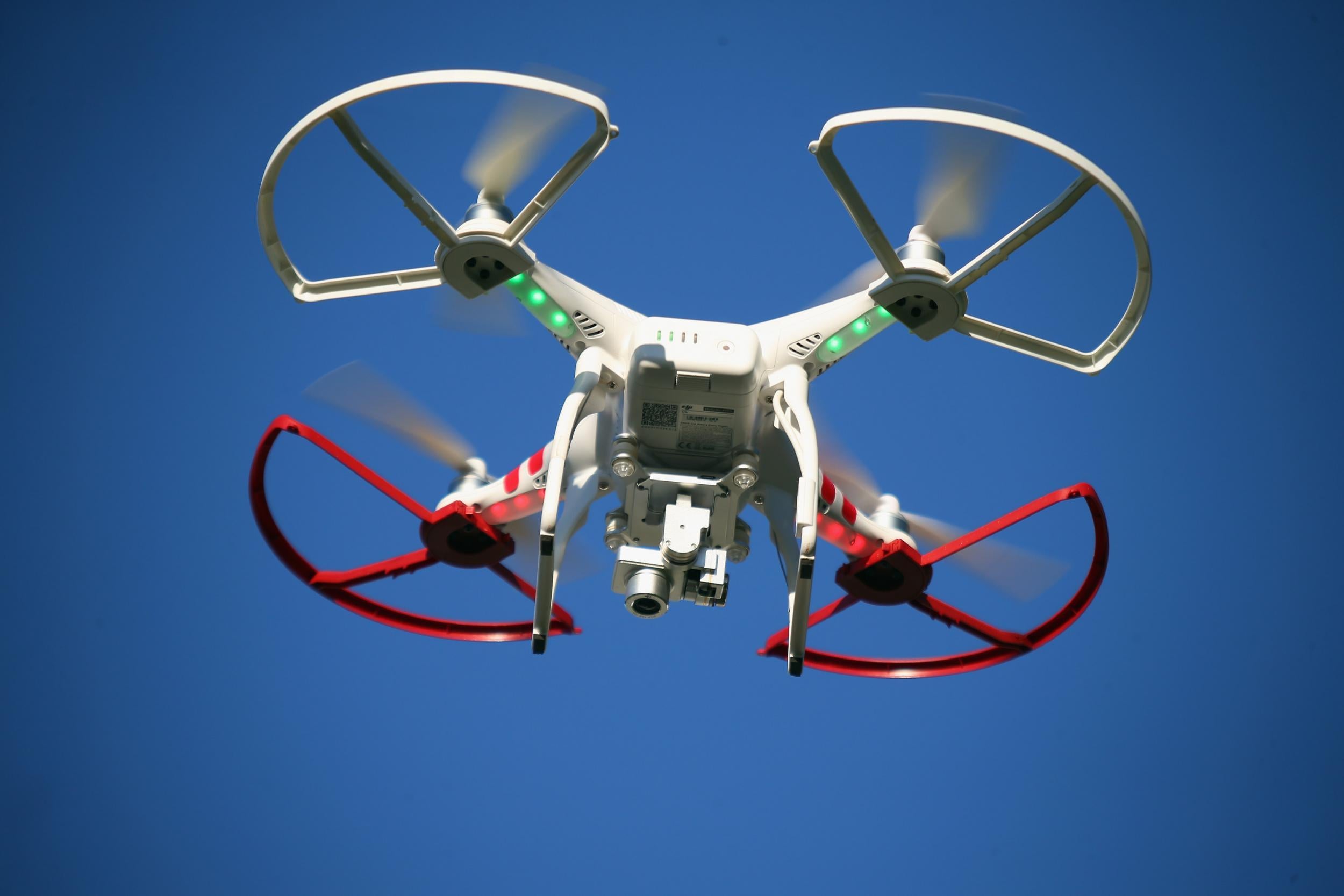Terrorists could use drones to attack planes and spread propaganda, government security adviser warns
As drones become more easily available, the danger to the public is growing, security expert Colin Smith had said

Your support helps us to tell the story
From reproductive rights to climate change to Big Tech, The Independent is on the ground when the story is developing. Whether it's investigating the financials of Elon Musk's pro-Trump PAC or producing our latest documentary, 'The A Word', which shines a light on the American women fighting for reproductive rights, we know how important it is to parse out the facts from the messaging.
At such a critical moment in US history, we need reporters on the ground. Your donation allows us to keep sending journalists to speak to both sides of the story.
The Independent is trusted by Americans across the entire political spectrum. And unlike many other quality news outlets, we choose not to lock Americans out of our reporting and analysis with paywalls. We believe quality journalism should be available to everyone, paid for by those who can afford it.
Your support makes all the difference.A government counter-terrorism adviser has warned that terrorists could use commercially available drones to attack passenger planes.
In an interview with the Sunday Times, Detective Chief Inspector Colin Smith, a security expert and adviser to the Home Office Centre for Applied Science and Technology, warned that small quadcopter drones could easily be used by terrorists for attacks and propaganda purposes.
Speaking to a military and industrial audience at a conference in London recently, Smith mentioned the frequency of near misses between drones and larger aircraft.
"This is happening on a weekly basis," he said.
"We are not just talking about hundreds of feet, we are talking thousands. People are flying drones in the path of aircraft, having a look, seeing if they can get alongside the cockpit to see what is going on."
Accidental collisions with aircraft are a serious risk, but Smith warned that terrorists could fly the devices into an engine or load them with explosives to try to bring the plane down.
He also said that groups like Isis could spread propaganda with drones, which can now be bought for as little as £100 on the high street.
He mentioned an incident which took place during an Albania-Serbia Euro 2016 qualifying match in Belgrade last year, in which someone flew a drone carrying a pro-Albania banner onto the pitch.
The incident caused brawls to break out between players, team officials and fans, causing the match to be abandoned.
Speaking to the paper, Smith said: "As an embarrassment factor, change that to an Isis flag and fly that down Whitehall during Remembrance Sunday."

"Who's going to be able to stop that flag being flown? It is a real and current problem."
Drones were practically unheard of five years ago, but advances in technology mean that the devices are now cheap and readily available.
Model aeroplanes have been around for decades, but drones can hover, fly slowly and land and take off vertically, making them very useful for photographers, filmmakers, police forces and recreational flyers.
As drones become more common, the government is considering a number of options to restrict their use - in March this year, the House of Lords called on the EU to introduce a compulsory registration system for the devices, but the plans have stalled.
Drone owners currently don't have to register their devices in the UK, but operators need permission from the Civil Aviation Authority to fly them for commercial purposes or over long distances.
There are a number of restricted areas across the UK, such as airports and military installations, where owners are not allowed to fly their drones.
However, these rules are sometimes broken - last summer, there were four potentially dangerous near-misses between drones and planes in one month across the UK.
In March this year, Robert Knowles became the first person to be convicted for dangerous drone flying, after his out-of-control device came within centrimetres of the busy Jubilee Bridge over the Walney Channel in Barrow-in-Furness, before crashing into the river.
He also pleaded guilty to flying the drone in restricted airspace over a BAE Systems nuclear submarine testing facility.
Join our commenting forum
Join thought-provoking conversations, follow other Independent readers and see their replies
Comments